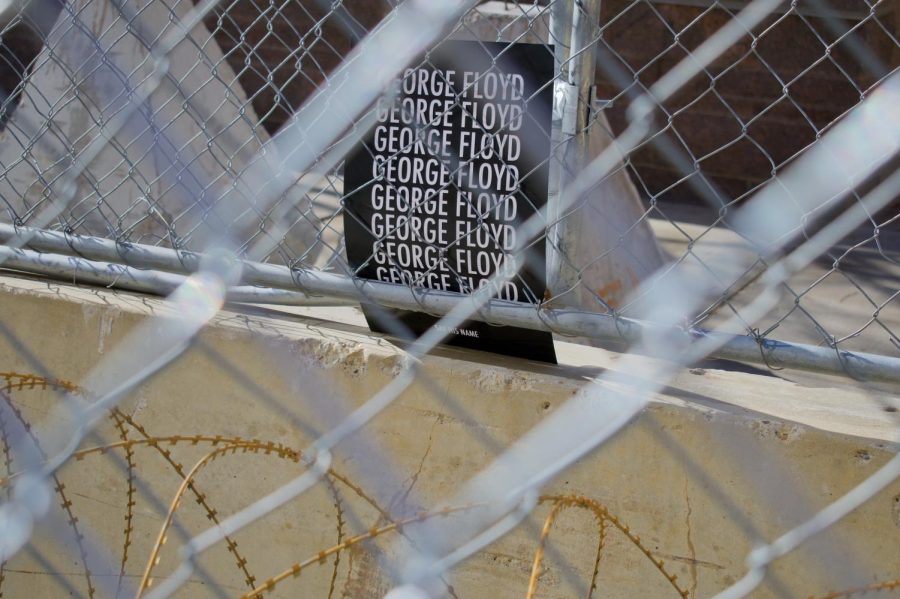Opening statements for the federal trial of the three former Minneapolis police officers for violating George Floyd’s civil rights begins Monday.
Four former officers, Derek Chauvin, Thomas Lane, J. Alexander Kueng and Tou Thao, are charged with violating Floyd’s constitutional rights under color of law. Color of law means the officers were acting as government officials when Chauvin murdered Floyd. The court alleges that the four officers deprived Floyd of his liberty without due process.
Chauvin, who was convicted for the murder of George Floyd last spring in the state court, pleaded guilty to the federal charges on Dec. 15.
Jury selection for the federal trial for the three other officers happened Jan. 20 and opening statements are set to begin on Jan. 24. The former officers are being tried in St. Paul at the Warren E. Berger courthouse.
Since the officers were government actors, they can be charged with civil rights violations, said Abigail Cerra, chair of the Minneapolis Police Conduct Oversight Commission. If they were acting as citizens at the time of Floyd’s murder, the United States would not have the ability to charge the former officers federally.
“In this case, the … federal offense is that these officers are accused of violating George Floyd’s federal rights and civil rights provided under federal law, and that they were acting under the color of law,” Cerra said. “They were government actors when they did it.”
Kueng and Thao are charged with failing to intervene and stop Chauvin from an unreasonable use of force. The complaint alleges that Kueng and Thao were aware Chauvin was holding his knee across Floyd’s neck while the officer pinned a “handcuffed and unresisting” Floyd to the ground, resulting in his death.
The United States also charged Kueng and Thao with denying Floyd of his Fourth Amendment right to be free from unreasonable seizure. David Schultz, a professor of law at the University of Minnesota, said the two officers aided and abetted Chauvin in the civil rights violation by not intervening.
“The Supreme Court has said when government agents use excessive deadly force, it’s evaluated under the Fourth Amendment as a form of illegal search and seizure,” Schultz said. “If I’m a police officer and I shoot and kill you when I’m not supposed to do so, that’s a Fourth Amendment violation because I seized your life.”
Chauvin was separately charged in the federal court with violating Floyd’s Fourth Amendment right according to the complaint, but already pleaded guilty to this charge.
The state of Minnesota charged the three officers with unintentionally aiding and abetting Chauvin in the murder of Floyd. That trial is supposed to begin in June. Schultz said it is similar to aiding and abetting in the Federal case because their failure to intervene indirectly resulted in Floyd’s death.
If found guilty of the federal charges, the officers will be sentenced under federal sentencing guidelines and could potentially face life in prison. Schultz said if they are found guilty on federal charges, it wouldn’t prove that they are guilty on the state charges.
“Assuming they get a federal conviction, they’ll be sentenced. They still face a state trial conviction under federal law,” Schultz said. “Just because they violated his civil rights, assuming they were convicted, doesn’t mean they’re guilty of Minnesota criminal law.”
If the officers are found guilty of the federal and state criminal charges, they will serve their sentences concurrently, meaning they would serve their sentences in federal prison, Cerra said.
Toshira Garraway, founder of Families Supporting Families Against Police Violence, said she wants to see accountability happen with police officers and government trials. In 2009, Garraway’s fiance, Justin Teigen, was found dead in a recycling center after an interaction with St. Paul police officers. Garraway said she believes the police are responsible for his death.
Garraway said it has been difficult for her and her family to watch the news and trial proceedings after killings of Black men by police.
“I hope to see but the rules change and the laws change that have allowed this stuff to happen to the community,” Garraway said.




















